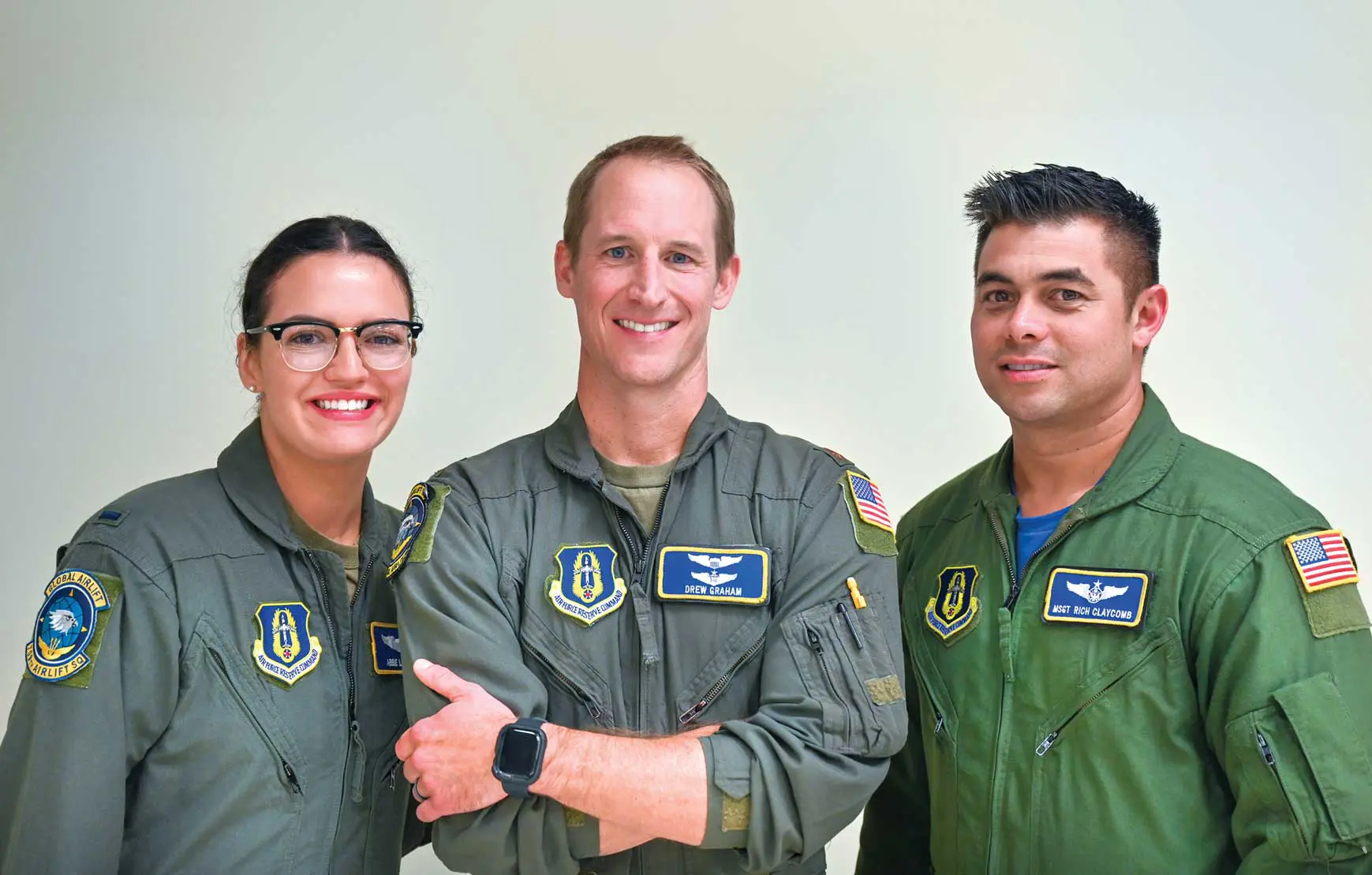When In-Flight Emergencies Happen
By MS. RORY MERRITT, STAFF WRITER
A 709th Airlift Squadron (AS) aircrew on Dover Air Force Base (AFB) received a quarterly safety award on Oct. 14, 2023, for their calm, measured responses to multiple in-flight emergencies. The emergencies occurred on a C-5M Super Galaxy as it was being flown back to Dover AFB from Royal Air Force Mildenhall in Suffolk, England.
The first emergency the AS aircrew encountered was a pressurization issue that began when they ascended the C-5M to 34,000 feet. To maintain cabin altitude they were forced to descend to 30,000 feet, causing the aircraft to burn fuel at a faster rate. To mitigate the increased loss of fuel usage, 709 AS Pilot Maj Andrew Graham and other crew members worked with flight engineers to calculate how to land at Dover AFB safely with a new, computerized fuel plan.
This incident was only the beginning.
After finalizing a new fuel plan, a portion of the C-5M’s landing gear malfunctioned as the aircraft approached Dover AFB. When implementing the procedures to correct this common issue failed, Maj Adam Bearden, another 709 AS Pilot, was not initially concerned. “However, the time it was taking to determine the problem with the landing gear became a threat because we were getting lower and lower on fuel,” he stated.
The crew eventually resolved the landing gear issue, but yet another challenging situation arose. Due to a storm in the area, the aircrew lost sight of the runway, delaying the landing at Dover AFB. The delay caused the aircraft’s fuel level to drop even further ”to a dangerous level of about 18,000 pounds.
In response to this emergency, Bearden and others worked with the tower controller to find a different runway he could see well enough to make a safe landing. “It was at this moment that every minute of training I’d received was utilized,” Bearden said.
Air Force training, known as crew resource management (CRM), focuses on group dynamics, leadership, interpersonal communications, and decision-making. According to the American Psychological Association, CRM is the process used by crew members to identify existing and potential threats and implement plans and actions to mitigate such threats. Using CRM methods, aircrew members can avoid and manage human errors to boost communication, effectiveness, and safety among the crews that fly, maintain, and repair aircraft.
According to the National Commission on Military Aviation Safety”a congressionally mandated commission that examines and makes recommendations with respect to U.S. military aviation mishaps”inadequate management and shortfalls in training and experience can lead to a surge in accidents. Also, based on the evidence that CRM is effective, the International Civil Aviation Organization, a regulatory component of the United Nations, began requiring CRM programs for member countries, including the United States.
In the situation encountered by the squadron, Bearden and the rest of the aircrew were able to leverage their extensive readiness training to deal with the multiple emergencies at once while remaining collected, communicating with each other, and prioritizing safety. The crew even takes pilot and flight engineer refresher courses periodically ”involving field training exercises and combat scenarios” to continually enhance their CRM skills.
The quarterly safety award was presented to the 709 AS aircrew by Col Douglas Stouffer, the 512th Airlift Wing Commander, who said, “Without Airmen like you who have the knowledge and ability to face challenges head-on and solve complex issues, whether flying or on the ground, the 512th Airlift Wing wouldn’t be able to accomplish its mission.”
Congratulations to the 709 AS aircrew for drawing from their training and experience and demonstrating excellent leadership, communication, and readiness in harrowing situations.

